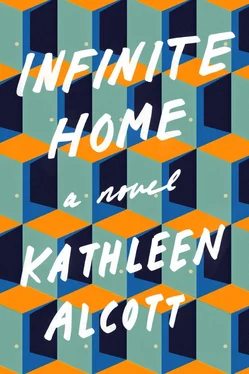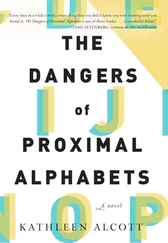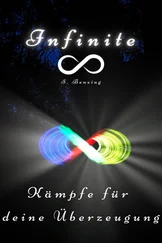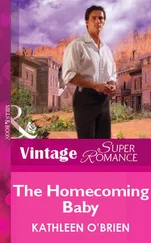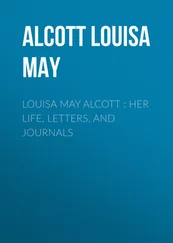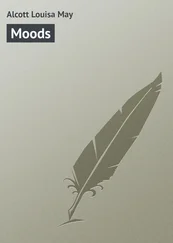In the heat of the road’s shoulder, he tried to attach these memories to the cars that passed, visualized a steel-blue sedan towing away the image of his misery growing stale on the couch, saw a Wonder Bread truck whisking Helena away to somewhere effortless and warm. Moved by a boozy spirit of generosity five months before, their mutual friend Martin had given him Helena’s new phone number. “You should call her,” he’d said. “Maybe it’s been long enough. People get older, you know, and they’re more willing to forgive. It’s almost never easier to forget someone totally.” He had reached for Edward’s phone and programmed her name into the contact list in capital letters. Since then he had taken to scrolling through furiously until he reached H, then staring at the digitized representation of the life he had missed — a minute, then two — for as long as he could endure it. It had become a day-ruining thrill, an overdose that required concentrated efforts at recovery. And then, on the side of the road in Tennessee, in running shoes the color of dishwater, with sweat dripping from a hairline that crept farther back daily, with no clear plans for middle age, Edward pressed the little green icon of a telephone. As the rings multiplied, he scrambled farther into the brush, looking for some thicket in which to lie and suffer.
What had he expected? That she would answer and speak his name with wind chimes in her voice? Her outgoing message was simply her recorded name spoken cheerfully, like the answer to a riddle. When the tone came, he took a fistful of grass and weeds between his fingers and gathered, with no small shock, that he was speaking.
“Hey, Edward! I mean, Edward, it’s hey. Goddamnit—”
He didn’t get the chance to resolve his blunder. The protracted beep of a call on the other line sounded, and her name flashed in bold, spectral rhythm.
HELENA
HELENA
HELENA

BECAUSE WALLACE’S TRUCK, gray like wet gravel, could fit only three, and Thomas’s rental had been mysteriously returned on his behalf, he had to stay behind while Song’s son drove the two hours to the tiny municipal airport. Thomas sent with him a hand-painted sign, oil on plywood, that featured their names. His right hand, competent now but never assured, had trembled as he added a flourish to the “A” in “Adeleine” and “E” in “Edith.” He had kissed two fingers, tapped them on Wallace’s side mirror, and watched the truck bump along the untended land until the trees obscured it.
Outside the arrivals terminal, there was no shade, everything cut away for the shimmering parking lot, and the heat rose in abundance from the concrete, uncut by any wind. Wallace leaned on the hood, whistling long notes under his straw cowboy hat, holding up the sign though the plane still sat on the runway, full of passengers.
The people who began filtering out ten minutes later were rumpled and squinting in the white push of heat. Some, met by relatives in shorts who waved halfheartedly before turning back to their cars, crossed the lot at a clip, rolling suitcases at their heels. Others, solitary, navigated the parking lot like those emerging from a long matinee, not yet accustomed to the changed light. When the last of them had slipped through the sieve of warmth into air-conditioned cars, the slow automatic doors revealed Adeleine and Edith, the younger woman in a broad sun hat that cast checkered shadows on her milky shoulders, the elder in a pinstriped dress that drooped from her body. He pressed his Stetson to his chest and approached.
“You must be Edith.”
Their eyes were similar, the blue-green patterned in symmetry, and the lids slightly hooded, folds like loosely made beds.
“I don’t know who you are.”
“I’m Wallace. I’m here to take you home. See? Sign right here says so.”
Edith kept her face up to the sound of his speaking but clutched both hands on her patent-leather purse, as though feeling for some makeshift weapon within it. Wallace’s mild voice washed in, becoming emphatic.
“There’s a big lunch waiting, Edith. We’re roasting all kinds of vegetables and brewing a vat of cider. We built you a bed from cedar and painted it yellow. There’s a fireplace and a porch with a chair just for you, and if you want, I’ll show you the place in the woods where I keep a hammock. There are cats, and some are sweet and some spend most days exploring on their own. We stay quiet most of the time, so we can always hear the river. Everything you’ll need is close by, and the water is clean. Would you like to come see?”
He put his hand out to her, spread it flat and wide, and acknowledged Adeleine — who blushed in the uncertainty of her part in all of it — with a wink. Edith shuffled across the pavement with a certain dignity, her jaw bobbing as she looked left and right, and when they reached the passenger side of Wallace’s truck, he pressed down on the silver handle, led the door’s opening as if conducting the first note of an opera.

THOUGH EDWARD HAD PREPARED his voice, called on notes of casual competence, he answered as though being held over a fire.
“Um, hello,” she said.
“Helena! It’s Edward!” His whole body protested the moment, and he tried to compensate for anxiety with enthusiasm.
“Boy howdy and Jesus Christ. I knew I recognized the number. I just didn’t know whose it was.”
“Well.”
“Well? You called me .”
“Right. How are you?”
“As in… how have the last ten years treated me? Or, right in this moment, am I good or bad? Have I consumed any above-average fusion cuisine recently? Is the weather decent?”
“Okay — I’m sorry. Maybe I shouldn’t have called. But listen, I’m actually calling about an extremely important issue, one that’s keeping me up nights, and that’s — joint health.”
“What?”
“Are you taking care of your joints? Enough omega-threes in your life?”
“I’m not going to laugh. You’re very funny, but I’m not going to.”
“I’m not laughing. Do you hear me laughing? I cannot stress enough the crucial nature of knee bends. How would you like to spend your middle age? The choice is yours.”
“Where are you, Edward? What are you doing? Anything? Why are you calling?”
“I’m, uh—”
“Are you right where I left you?”
“Actually, I’m in Tennessee.”
“What?” The genuine surprise in her voice exposed a warmth previously hidden, and he was hit by the ghost of their dynamic, arriving at punch lines together at the dinner table, clutching at each other’s elbows in glee.
“Yeah. The Smoky Mountains. But specifically, the side of some road, knee-deep in all kinds of weird grass I’ve never seen before. I’m here to see — they’re called synchronous fireflies, and they only do this once a year, only here and somewhere in the Philippines, and they light up all at once, rhythmically, in a dance. It’s like the destination rave for bugs.”
“Are you fucking with me?”
“No.”
“Why are you there?”
“Um, I’m here with my neighbor. Well, he’s my friend. He’s also a disabled thirty-three-year-old who plays the electronic keyboard pretty well and owns several plastic swords. He’s very generous and wants to talk to everyone, always, and has barely left my apartment in the last six months. But we’re getting evicted. Edith — you remember her?”
Читать дальше
